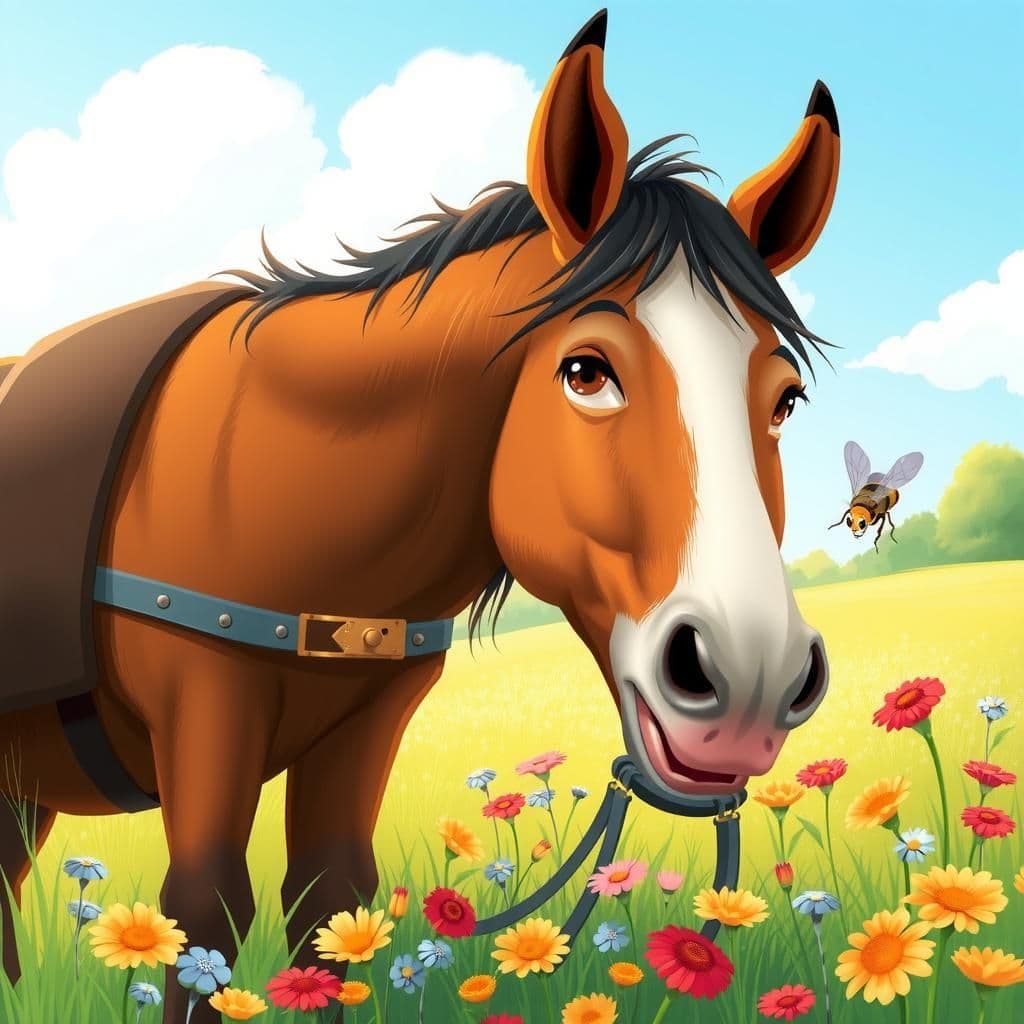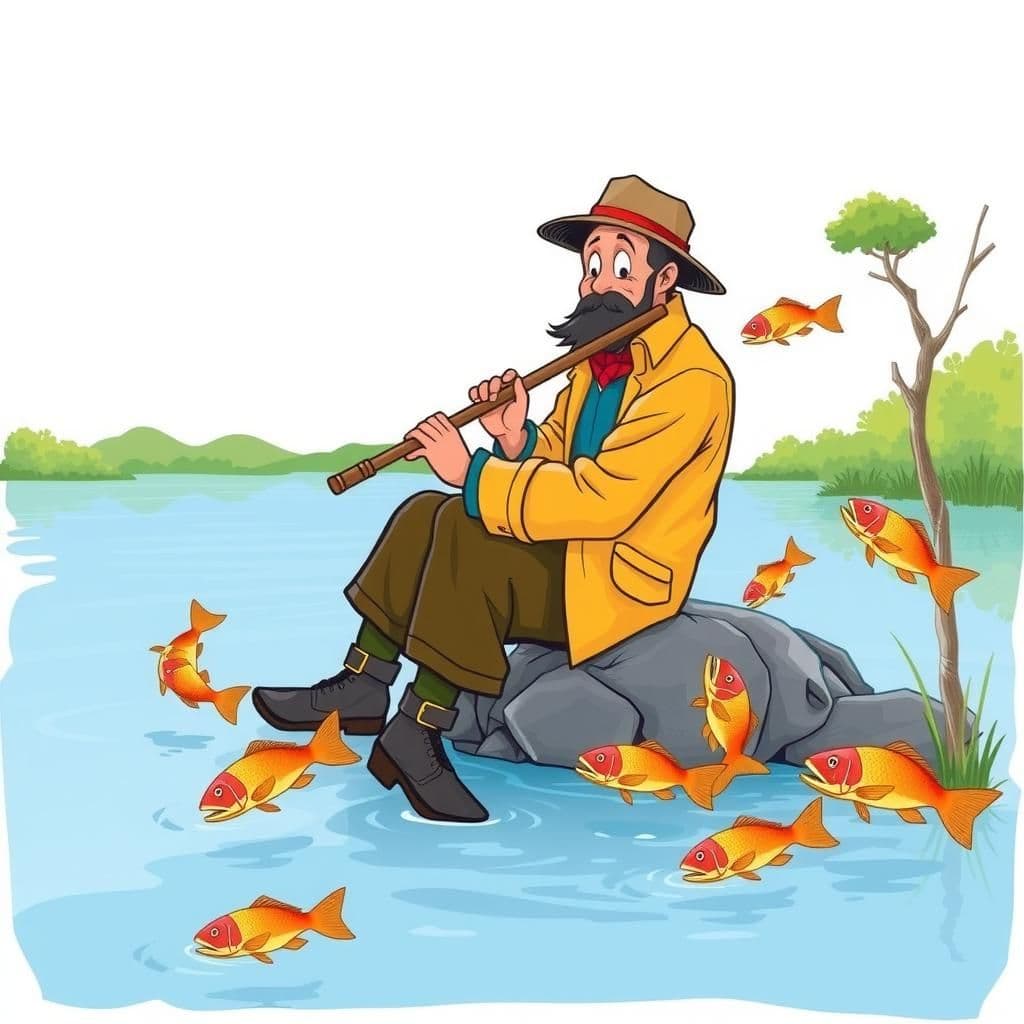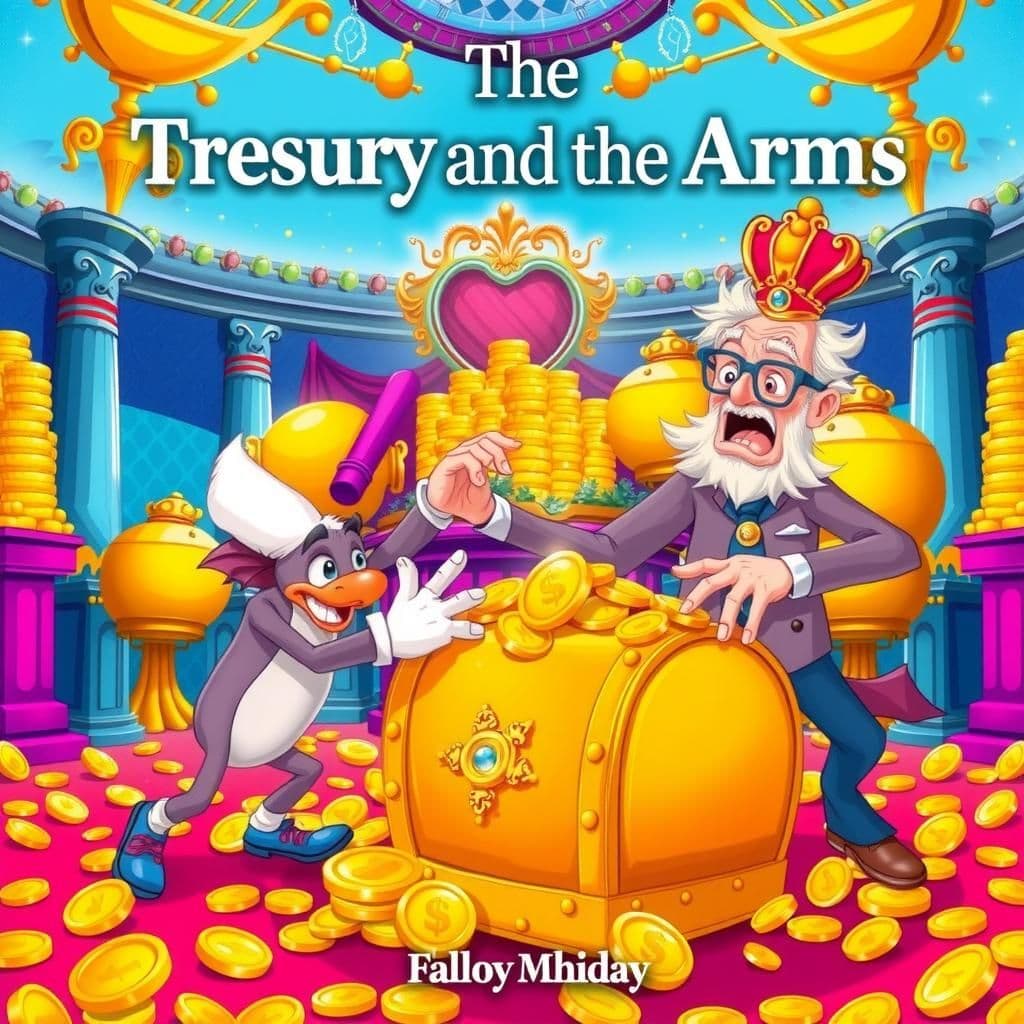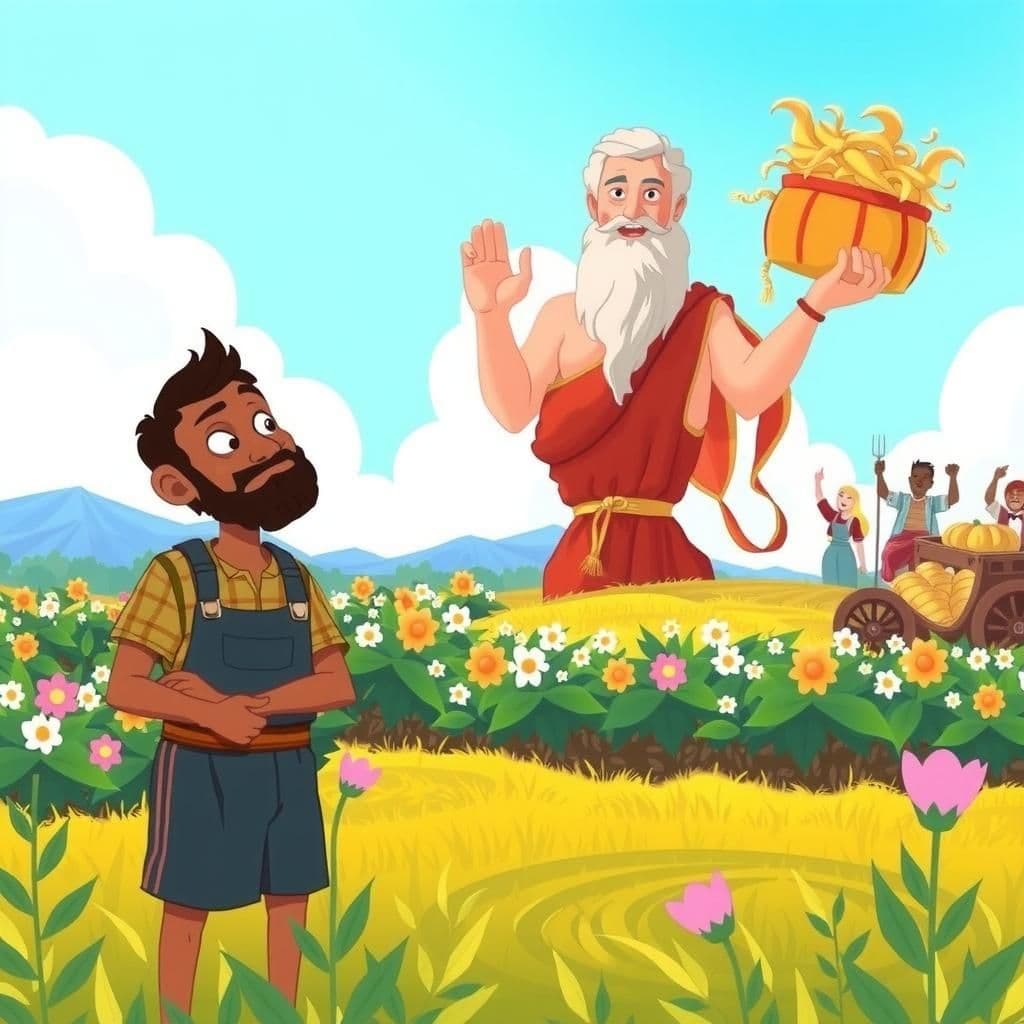The Fly and the Draught Mule
In this moral-based storytelling, a fly mocks a draught mule for its slow pace, threatening to sting it into moving faster. The mule, however, teaches a valuable lesson from moral stories for personal growth by explaining that it only responds to its driver's commands, highlighting the importance of knowing one's true source of strength and direction in life. This real-life story with moral emphasizes the significance of resilience against unwarranted criticism.

Reveal Moral
"The moral of the story is that those in positions of power should not be swayed by the insignificant criticisms of others, as true authority knows when to act and when to remain steadfast."
You May Also Like

The Fisherman Piping
A skilled fisherman, hoping to attract fish with his flute, finds his melodic efforts fruitless as the fish remain unresponsive. Frustrated, he casts his net without music and catches a great number of fish, which begin to leap joyfully. This short moral story highlights the irony of how the fish chose to dance only after he stopped playing, reflecting the theme often found in moral stories for class 7 about the unpredictability of behavior and the nature of desire.

The Treasury and the Arms
In "The Treasury and the Arms," a Public Treasury, reminiscent of childhood stories with moral lessons, detects Two Arms attempting to pilfer its contents and calls for a division, invoking parliamentary procedures. The Two Arms, recognizing the Treasury's grasp of legislative language, underscore the tension between governance and appropriation, echoing themes found in short moral stories with pictures that teach valuable lessons about integrity and responsibility.

Jupiter and the Sharecropper
In "Jupiter and the Sharecropper," a prideful sharecropper learns a valuable lesson about humility when he arrogantly attempts to control the weather for a prosperous harvest, only to fail while his neighbors thrive. This uplifting moral story illustrates the importance of trusting in Providence rather than one's own hubris, ultimately conveying that true success comes from acceptance and faith. Through this meaningful story with moral, readers are reminded of the lessons learned from stories that emphasize the value of humility and reliance on a higher power.